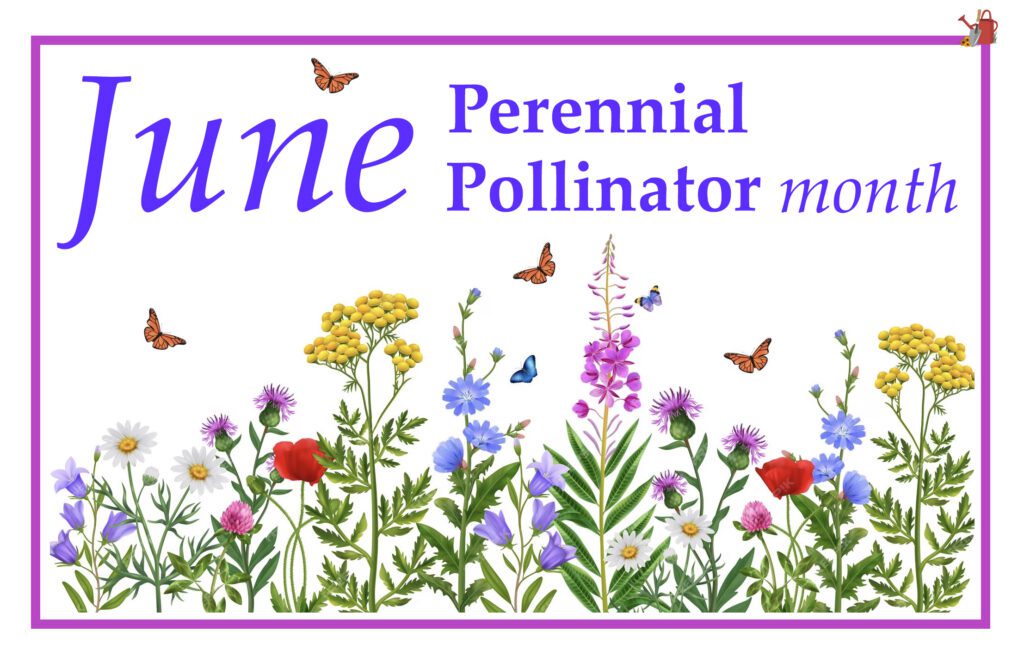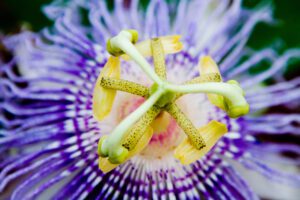
Reems Creek Nursery has long been a supporter of pollinators, with many years of being a Monarch Waystation, hosting a certified Pollinator Garden (see picture below from 2018), holding fun yet informative workshops, collaborating with our friends Bee City Asheville, and ensuring that our Sister Farm grows our plants using pollinator-friendly practices.

Be sure to visit our GIANT Gulf Fritillary Butterfly in our certified Pollinator Garden! It’s scaled to be human sized (perfect for selfies) and it’s part of the Asheville Butterfly Trail – a really awesome local project designed to inform people about different pollinators, their host plants (which they require in order to start a family), and how to help protect these beautiful creatures.
We have the host plant for the Gulf Fritillary – Maypops aka Passiflora incarnata – planted in our Pollinator Garden, and we get a special shipment of those plants every February. If you are interested in getting one of these incredible plants, contact us and will let you know when that shipment arrives!

It’s also great inspiration to fill your garden with host and nectar plants – you’ve never felt like a Disney Princess until you stroll out into your garden that is so filled with butterflies that they land on you!
Fortunately, since we are a plant nursery and garden center, we get to see many wonderful creatures passing through here:

Hawkmoths mating in our Veggie/Herb garden, Monarch Butterfly on a perennial Mum, and Bee on Echinacea in the Perennial Dept.
Now that it is mid-June, we have two free exciting workshops about pollinators left on the calendar:
- Introduction to Pollinators – Sat., June 14th
- Creating a Lively Pollinator Garden – Sat., June 21st
We also have a fresh blog post on the 2025 Pollinator of the Year – our native Squash Bee. Learn all about these fascinating bees who ensure we have ample squashes, pumpkins, and gourds every year.
Be certain to see more events from our friends at Bee City Asheville and their Pollination Celebration!
“Butterflies used to reproduce on the native plants that grew in our yards before the plants were bulldozed and replaced with lawn. To have butterflies in our future, we need to replace those lost host plants, no if’s, and’s or but’s. If we do not, butterfly populations will continue to decline with every new house that is built.”
― Douglas Tallamy
Well that’s pretty motivating. Let’s get planting!!
